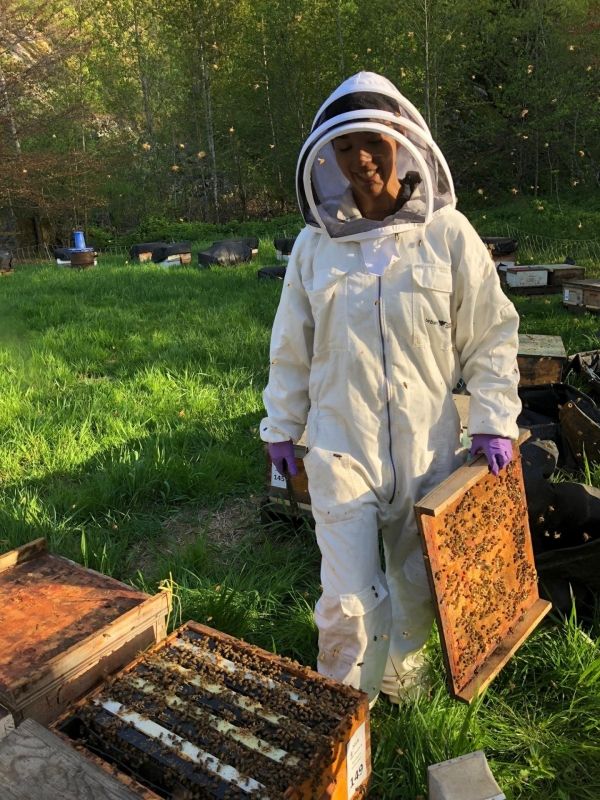New research from the University of British Columbia and North Carolina State University could help scientists track how climate change is impacting the birds and the bees… of honey bees.
Heat can kill sperm cells across the animal kingdom, yet there are few ways to monitor the impact of heat on pollinators like honey bees, who are vital to ecosystems and agriculture around the world.
In a study published in Nature Sustainability, researchers used a technique called mass spectrometry to analyze sperm stored in honey bee queens and found five proteins that are activated when the queens are exposed to extreme temperatures.
The proteins could be used as a tool to monitor heat stress in queen bees, and serve as a bellwether for wider insect fertility losses due to climate change.
Read more at: The University of British Columbia
Alison McAfee in a beekeeping suit (Photo Credit: Alison McAfee)


